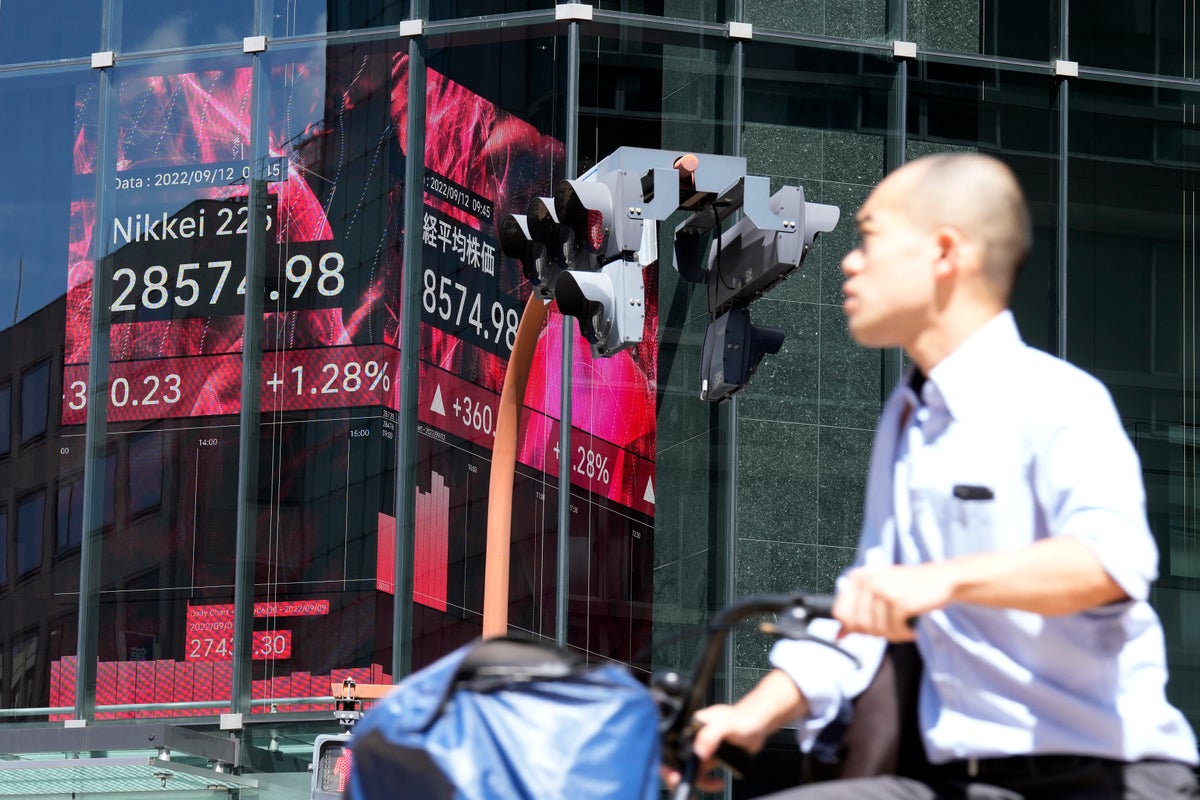
Shares rose Monday in Asia after last week’s strong close on Wall Street snapped a three-week losing streak.
Many regional markets were closed for holidays, while Tokyo and Sydney advanced. Oil prices declined.
Investors are watching for U.S. inflation figures and Chinese economic data this week.
The U.S. Labor Department will release its report on consumer prices for August on Tuesday and a report on wholesale prices on Wednesday. On Thursday, Wall Street will get an update on retail sales for August.
Coronavirus cases are still casting a shadow in China, where about 65 million Chinese were under lockdown as of last week despite just 1,248 new cases of domestic transmission, mostly asymptomatic, being reported on Sunday.
“All in all, the lower-for-longer growth picture remains the theme for China," Yeap Jun Rong of IG said in a commentary.
Tokyo's Nikkei 225 gained 1.2% to 28,546.09 and the S&P/ASX 200 in Sydney surged 1.2% to 6,973.60. Taiwan's benchmark gained 1.6%. Markets in Shanghai, Hong Kong and Seoul were closed for holidays.
On Friday, the S&P 500 closed 1.5% higher at 4,067.36, its third straight increase, and ended with a 3.7% gain for the week. That makes it the benchmark index's best week going back to July.
Big gains for technology companies pushed the Nasdaq composite to a 2.1% gain, at 12,112.31. The Dow Jones Industrial Average rose 1.2% to 32,151.71. Both indexes also notched their first weekly gain in four weeks.
Smaller company stocks also notched solid gains. The Russell 2000 index jumped 1.9% to 1,882.85.
Those gains punctuated a holiday-shortened week of trading on Wall Street during which the market regained some of the ground it lost after a mid-August slump that wiped away the much of the gains from a mid-summer rally.
All 11 industry sectors in the benchmark S&P 500 rose, though makers of household goods and utilities, which are typically considered less risky investments, lagged the market. U.S. crude oil prices rose 3.9%, helping push up energy sector stocks. Exxon Mobil rose 1.7%.
The Federal Reserve is in the spotlight as investors they try to figure out whether the U.S. central bank's plan to cool the hottest inflation in four decades will work or possibly tip an already slowing economy into a recession.
Stocks spent July and part of August gaining ground on hopes that the Fed would ease up on its interest rate hikes, but slumped over the last few weeks as it became clear the central bank remained resolute in raising rates.
The central bank has already raised rates four times this year and markets expect it to deliver another jumbo-sized increase of three-quarters of a percentage point at its next meeting in two weeks. Fed officials, including Chair Jerome Powell, have all reaffirmed the central bank's determination in raising rates until inflation is under control.
In other trading Monday, U.S. benchmark crude oil lost $1.34 to $85.45 a barrel in electronic trading on the New York Mercantile exchange. It jumped $3.25 to $86.79 a barrel on Friday.
Brent crude oil, the pricing basis for international trading, gave up $1.30 to $91.54 a barrel.
The dollar rose to 143.02 Japanese yen from $142.26 yen. The euro slipped to $1.0080 from $1.0093.







